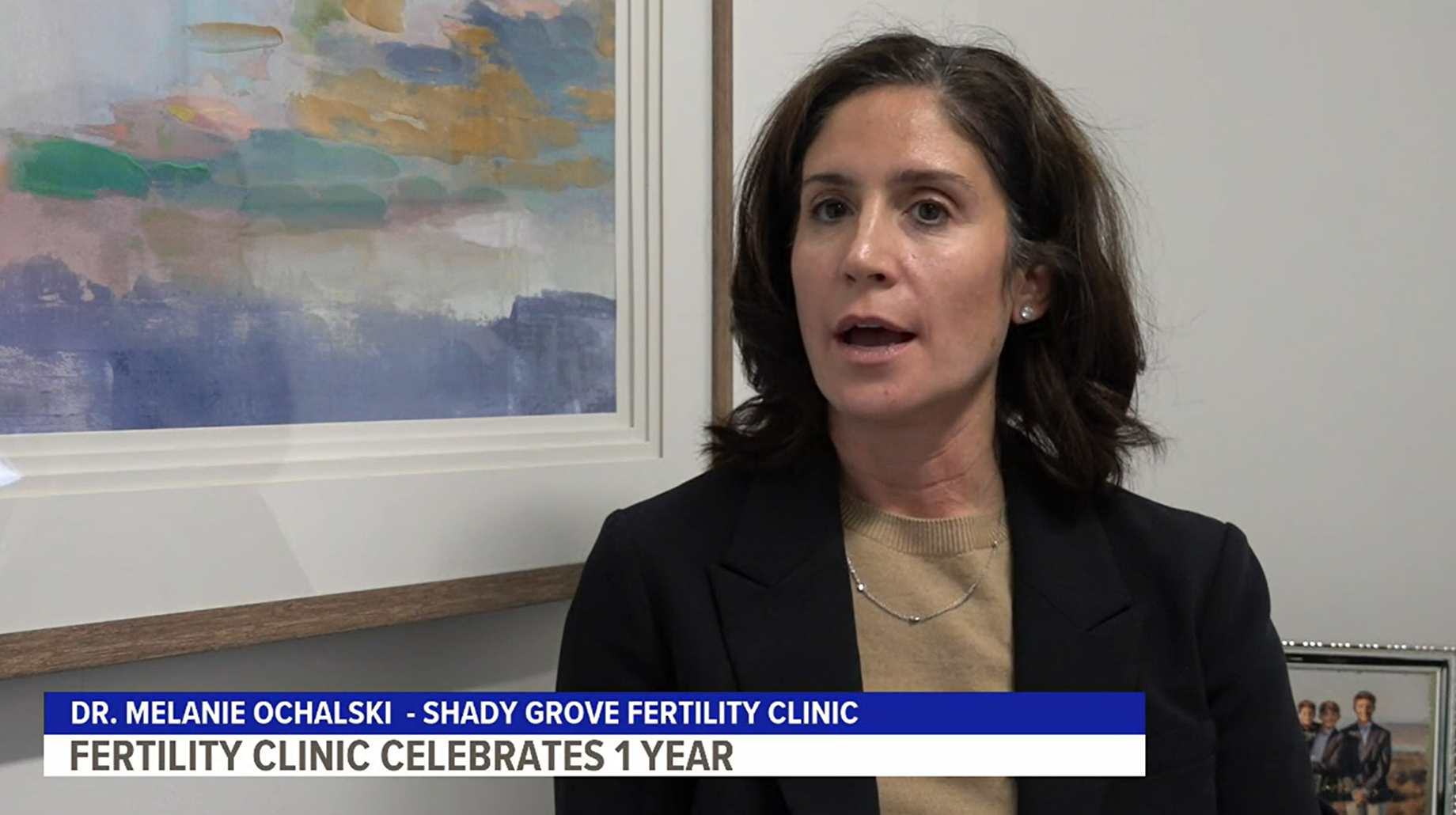Like a lot of 20-somethings, school psychologist Kimberly Picinich was doing all the right things to try and have a baby with her husband. She had used oral contraception for many years, starting as a teen in order to regulate her frequent and lengthy menstrual periods.
When the time was right for the couple to start a family, she stopped taking birth control pills, knowing it may take some time for her body to begin ovulating again. She was healthy, young, and ready to be a mother.
Then, it seemed as though all of her efforts were futile. After stopping the pill, Kim had one regular cycle. Beyond that, her cycles were anywhere from 35 to 75 days in length. Without any other symptoms of health problems, the 29 year old just knew something was wrong.
Kim and her husband had been very proactive (Kim refers to herself as “such a planner”). They’d consulted with her OB/Gyn for pre-conception planning and then followed up again in six months. Her physician wanted to try regulating Kim’s periods by managing her insulin levels with glucophage, a drug that has been favored by fertility specialists for treatment of polycystic ovarian syndrome (PCOS). After a couple of months using glucophage with no effect on her ovulation, Kim became frustrated.
A Team Approach to Care
A friend who had been a patient of Dr. Stephen Greenhouse at Shady Grove Fertility suggested Kim call the Center. “I wasn’t even sure if I was someone they would see at that point,” recalls Kim, “but they said yes, and an appointment was scheduled.” Before the consultation, Kim felt she needed to have a difficult and frank talk with her OB/Gyn, who had been her trusted primary care physician for several years. It was a big step for Kim, who felt like her request to see a specialist implied that she was second guessing her primary doctor.
“Oh, I think I actually cried in her office,” Kim admits. “But she was just so understanding and supportive.” Like a lot of new patients, Kim wasn’t aware that seeing a specialist did not mean that she had to discontinue being a patient of her primary care physician’s practice. In fact, Dr. Greenhouse and Kim’s gynecologist continued to work together for the patient’s benefit, collaborating on Kim’s treatment issues and needs once she was diagnosed at Shady Grove as having PCOS.
Kim didn’t have the classic visible symptoms of PCOS, like male pattern hair growth, but her hormone levels indicated to Dr. Greenhouse that indeed she had the syndrome. Her gynecologist had previously tested Kim, but had determined that her level of symptoms didn’t warrant a PCOS diagnosis. “I’m pretty asymptomatic, except for the menstrual disorder,” explains Kim.
Since treatment with glucophage had already been unsuccessful for Kim, Dr. Greenhouse prescribed a stimulated cycle with intrauterine insemination (IUI), using clomiphene citrate (an oral tablet, commonly known as Clomid) and injectables – Follistim, hCG, and progesterone. As is common in many women with PCOS, Kim became hyperstimulated, meaning that her body produced too many eggs to have a safe IUI outcome, so the first cycle was cancelled.
That’s when the additional diagnostic experience of a fertility specialist made a big difference for the young couple, who were going on a year of trying to conceive without success. A cyst was seen during ultrasound monitoring for her second IUI cycle. They tried a similar protocol without Follistim, but Kim didn’t conceive. Eventually, Dr. Greenhouse determined that the cyst, a type called dermoid, was too large to go untreated surgically.
Kim’s OB/Gyn performed laparoscopic surgery to remove the cyst, in addition to some previously undetected endometriosis. The two physicians communicated on behalf of their mutual patient, who took a month off from trying to conceive after surgery before trying another IUI at Shady Grove Fertility.
Being Proactive Pays Off
In Kim’s case, the third time was certainly the charm. As she says with a laugh, “I’ve been kicked out of Dr. Greenhouse’s care.” The reason: she is pregnant. Typically, fertility patients who succeed in conceiving move on to their obstetrician within the first trimester.
She and her husband hope to pursue subsequent pregnancies, but for now, they’re thoroughly enjoying this one, even with the nausea. “I think about whether we’ll go through fertility treatment for future pregnancies, and I’m not sure. I feel like I have a new body, without that cyst and the endometriosis. But I stay aware that ovulation may be a future issue for me and if that’s the case again, we won’t wait this time before going to Shady Grove.”
Kim’s story illustrates a common patient perspective. “I was afraid to seek out a specialist, and so many people kept saying ‘you’re young, it takes time’… but in a 12-month span, I’d only had four periods. Even though my doctor was very supportive and she’s a really positive person,
I don’t think she would’ve recommended my seeing a specialist if I hadn’t brought my concerns to her attention.”
Kim, who is now gratefully a few months pregnant, says “I really think that I would’ve never gotten pregnant without that help.”
“There were times when I thought maybe I just wasn’t meant to get pregnant,” the mother-to-be reflects. “I think a lot of people say wait the full year [before seeing a fertility specialist], but I tell everyone now if you don’t think things are right, see someone, don’t wait.”





